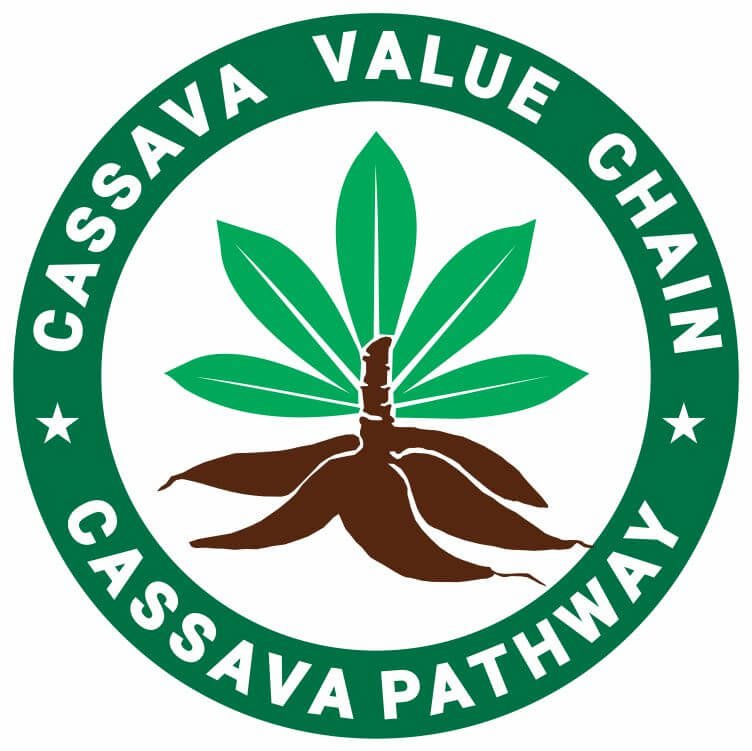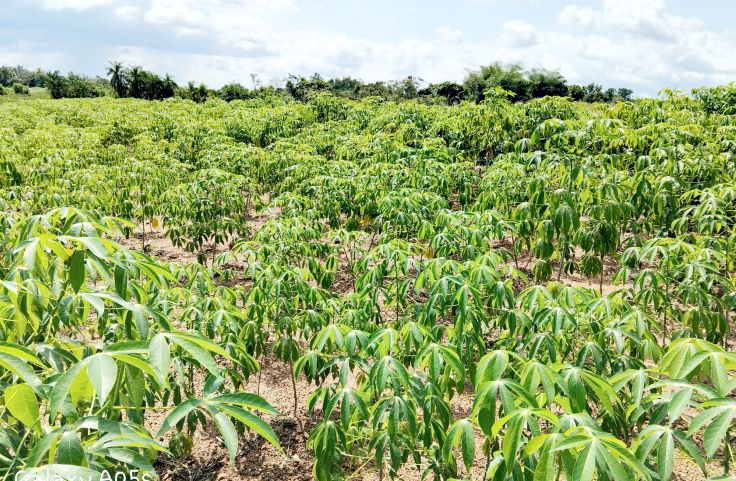Cassava the supercrop doesn’t just feed millions, it helps restore soil, cut carbon emissions, and reduce plastic waste. Here are the environmental benefits of cassava.
You might know cassava as a staple food, but it has many benefits as its impact goes far beyond the dinner plate.
As industries and farmers search for eco-friendly solutions, cassava is stepping up in unexpected ways.
It thrives in poor soils, requires minimal fertilizers, and absorbs large amounts of carbon dioxide.
Plus, its byproducts reduce waste, making it a game changer for sustainable agriculture and manufacturing.
Whether it’s improving soil health, cutting emissions, or creating biodegradable products, cassava is helping to reshape industries.
If you’re looking for a crop that benefits both the environment and the economy, cassava deserves your attention.
In this article, we have detailed all the environmental benefits of cassava and why people should cultivate it more.
Related: Benefits of the Cassava Root

Cassava’s Low Environmental Impact
Certainly, one of the foremost environmental benefits of cassava is its love of environmental impact, unlike many other crops.
Here is how it does it:
Drought Resistance and Low Water Use
Unlike crops that need constant irrigation, cassava survives with little water. It thrives in dry regions where other plants struggle.
When rainfall is low, you don’t have to worry about heavy irrigation or groundwater depletion.
Cassava’s deep roots find moisture, keeping it alive during long dry spells. This makes it a reliable crop in areas prone to drought and climate change.
Related: Nutritional Benefits of Cassava
Grows in Poor Soil Without Chemicals
Some crops demand rich soil and chemical fertilizers to grow. Cassava isn’t one of them. It grows in depleted, sandy, and rocky soils where other plants fail.
Because it doesn’t need much fertilizer, you reduce pollution from chemical runoff. Less pesticide use also means fewer toxins seeping into rivers and harming aquatic life.
Prevents Soil Erosion
Cassava’s root system helps hold the soil together. If you plant it on slopes or in areas with loose soil, it prevents erosion.
The leaves create a natural ground cover, reducing the impact of heavy rains and wind. Over time, this helps maintain soil fertility and prevents land degradation.
Related: Different Ways Your Health Benefits from Cassava
Carbon Sequestration and Climate Benefits
Another of the environmental benefits of cassava is carbon sequestration. This is how this happens with cassava:
Absorbs and Stores Carbon
Plants pull carbon dioxide from the air, and cassava is no exception. As it grows, it locks carbon in its leaves, stems, and roots.
This natural process helps reduce greenhouse gases in the atmosphere. When you plant cassava, you contribute to carbon sequestration, even on a small scale.
Works Well in Agroforestry
You don’t have to grow cassava alone. It thrives in agroforestry systems where farmers plant trees and crops together.
This setup enhances biodiversity, improves soil health, and captures more carbon. When combined with nitrogen-fixing plants, cassava supports a self-sustaining ecosystem that benefits both the land and the farmer.
Related: The Role of Cassava in Industries
Waste Reduction and Eco-Friendly Products
Another way cassava benefits the environment is by reducing waste and playing a part in eco-friendly products.
Uses Every Part of the Plant
Cassava generates little waste. The roots become food or biofuel, the peels turn into animal feed, and the leaves serve as livestock fodder.
Even the fibrous byproducts from processing can be composted or turned into bio-based materials. Nothing goes to waste when you use cassava efficiently.
Biodegradable Packaging and Bioplastics
Plastics pollute the planet, but cassava offers a solution. Starch extracted from cassava makes biodegradable packaging that decomposes naturally.
Unlike petroleum-based plastics, these alternatives don’t leave harmful microplastics in the environment.
Some companies already produce cassava-based bags, utensils, and food containers as eco-friendly replacements for plastic.
Cassava-Based Biofuel
Instead of relying on fossil fuels, you can turn cassava into ethanol. This biofuel burns cleaner, reducing emissions from transportation and industry.
Countries looking for renewable energy sources consider cassava ethanol as a viable alternative to gasoline.
Since it’s derived from plants, it has a lower carbon footprint than conventional fuel.
Recommended: The Culinary Benefits of Cassava
Sustainable Farming Practices with Cassava
No-Till Farming and Soil Conservation
Tilling the land can damage soil structure and release stored carbon. With cassava, you don’t need heavy plowing.
It grows well in no-till systems, preserving soil health and preventing carbon loss. Farmers who adopt no-till cassava farming see better soil moisture retention and improved crop resilience.
Fewer Chemical Inputs
Cassava resists pests naturally, so it doesn’t need as many pesticides. Some varieties even have built-in resistance to common threats.
Growing cassava reduces dependence on synthetic chemicals, leading to cleaner air, water, and soil.
If more farmers switch to cassava, pesticide pollution could drop significantly.
Supports Small-Scale Farmers
In many parts of the world, smallholder farmers rely on cassava for their livelihood. It requires minimal investment, grows in harsh conditions, and provides a steady source of income.
When farmers cultivate cassava using sustainable methods, they protect the environment while securing food and financial stability for their communities.
Challenges and Considerations
Risk of Deforestation
Large-scale cassava farming can lead to deforestation if land isn’t managed properly.
Expanding cassava plantations into forests harms biodiversity and disrupts ecosystems.
The key is responsible land use planning: growing cassava on already cleared land instead of cutting down trees.
Managing Processing Waste
Cassava contains natural toxins that must be removed during processing. If wastewater from processing isn’t handled correctly, it can contaminate local water sources.
The solution is better wastewater treatment and using cassava byproducts in a way that minimizes harm.
Balancing Food and Industrial Use
Cassava isn’t just for food. It’s used in biofuels, animal feed, and industrial applications. If demand for industrial use rises too much, food security could be affected.
Governments and industries must ensure cassava production doesn’t take away from local food supplies.
Conclusion
Cassava stands out as one of the most environmentally friendly crops you can grow. It thrives in tough conditions, reduces carbon emissions, and produces little waste.
Whether it’s preventing soil erosion, providing a plastic alternative, or serving as a renewable energy source, cassava proves its worth in sustainability.
With careful management, it can continue to benefit both people and the planet. If you’re looking for a crop that supports the environment while feeding millions, cassava is a clear choice.

Chimeremeze Emeh is a writer and researcher passionate about Africa’s most transformative root crop—cassava. Through his work at cassavavaluechain.com, he explores the entire cassava industry, from cultivation and processing to its diverse applications in food, health, and industrial use.
He also writes for palmoilpalm.com, where he shares his extensive experience and deep-rooted knowledge of palm oil, covering red palm oil, palm kernel oil, and refined products. His work there reflects his lifelong connection to agriculture and his commitment to promoting sustainable value chains in Africa.
Driven by curiosity and purpose, Chimeremeze aims to shed light on how cassava continues to empower communities, strengthen food systems, and link traditional farming wisdom with modern innovation.

